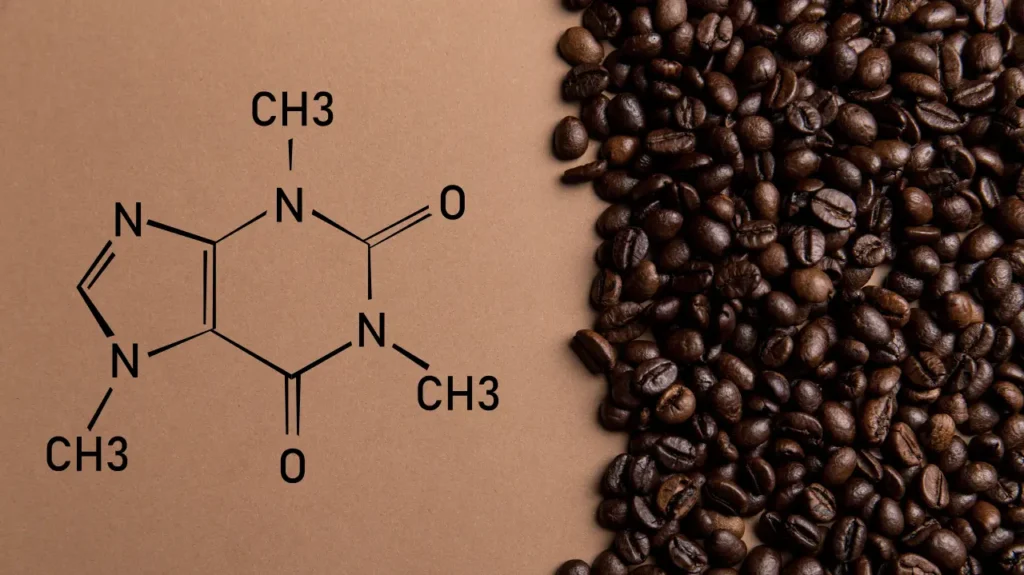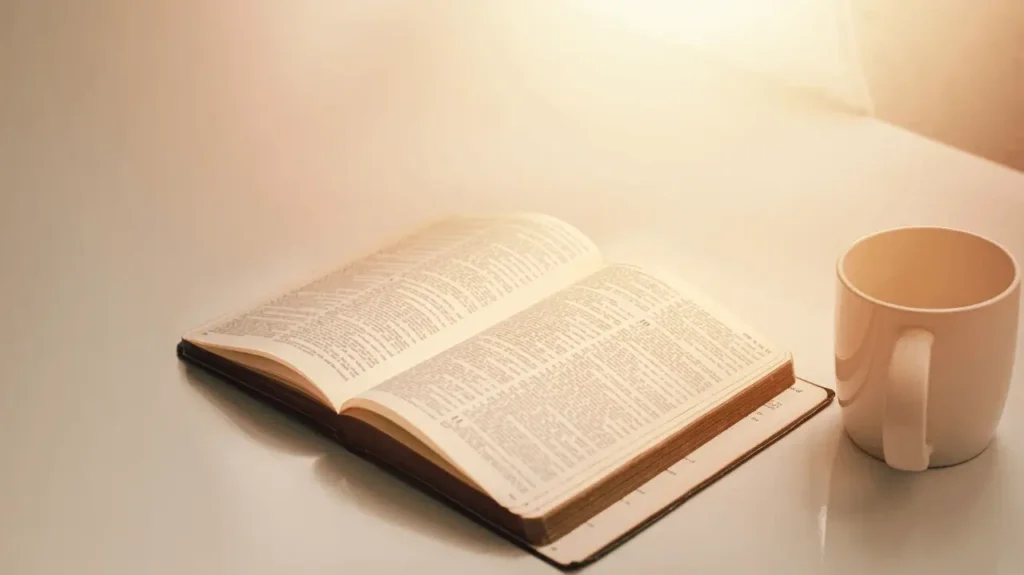A bustling café in Istanbul, the rich aroma of freshly ground beans mingling with laughter. Or a quiet Yemeni monastery, where Sufi mystics sipped dark brews to fuel midnight prayers.
“Do Muslims drink coffee?” isn’t just about caffeine; it’s a journey through faith, culture, and science.
For centuries, Coffee has been woven into Islamic life, from sacred rituals to social gatherings. But is it halal? Does science back its benefits? And why do some cups taste like history itself?
Let’s dive in. You’ll discover how a humble bean sparked debates, united communities, and became a global symbol of Muslim hospitality.
By the end, every sip you take will feel deeper. Ready to brew some answers?
Historical Context
Did you know Coffee’s first fans were Sufi monks? In 15th-century Yemen, mystics brewed it to stay awake during nighttime prayers.
Legend says a goat herder named Kaldi spotted his goats dancing after eating red coffee cherries, and when he tried them, energy surged through his veins.
Word spread fast. By the 1500s, Muslims from Mecca to Mumbai were hooked.
But trouble brewed. In 1511, Mecca’s governor banned Coffee, calling it a “tool for rebellion.” His fear? Crowds stay up all night talking in qahveh khaneh (Persian coffeehouses).
These spots weren’t just cafés but hubs where poets debated, scholars scribbled, and friends laughed. The ban collapsed within months. Muslims refused to abandon their beloved drink.
Enter the Ottomans. By the 1600s, Istanbul’s coffeehouses buzzed with political gossip and chess matches. The sultan even hired a Chief Coffee Maker, a job as prestigious as a royal chef.
When Ottoman traders brought Coffee to Europe, Christians called it “the devil’s drink” due to its Muslim ties.
Yet by the 1700s, Parisian cafés copied Islamic designs, hiding their debt to Muslim innovators.
From Delhi’s Chandni Chowk to Isfahan’s grand Maydan square, coffeehouses thrived under Sharia law’s protection.
Safavid generals drank it before battles; Mughal poets scribbled verses between sips. Europe later erased this history, crediting colonizers instead of Yemeni farmers.
But every espresso you sip today? It started with a Muslim monk’s prayer ritual.
Cultural Significance
In Turkey, refusing a coffee reading is like skipping dessert. After sipping thick, unfiltered brew from an ibrik, friends flip cups to read fortunes in the grounds.
Saudi Arabia takes hospitality seriously: Golden dollar pots pour cardamom-spiced gahwa into handleless cups. Say no to a third cup? Rude! It’s a sacred trio, each sip a nod to generosity.
Yemen, Coffee’s birthplace, turns brewing into art. Families roast beans over charcoal, grind them with a mihrab (wooden mortar), and simmer for hours.
Ethiopia’s ceremony is equally poetic; three rounds symbolize life’s blessings: Abol (first cup), Tona (second), and Baraka (third). Miss one, and you miss the soul of the ritual.
Morocco wakes up to nous-nous espresso married with steamed milk. Lebanese unwind with ahweh bayda: hot water, orange blossom, and honey, a caffeine-free hug after meals.
In Sudan, Mahwah packs a punch with ginger and black pepper, while Oman’s Ogawa dances with saffron and rosewater.
Algeria claims the first iced Coffee: mazagran, mixed with lemon, a relic of French colonial troops.
Ramadan nights buzz with Coffee’s buzz. After iftar, Muslims sip to stay alert for Taraweeh prayers. Morning routines? As essential as saying “Assalamu alaikum.”
Bedouin nomads still brew it in Kuwait, clay pits with pebble stoves, proving tradition outlives trends.
Fun fact: Pope Clement VIII baptized Coffee as “Christian-friendly” in 1600s Europe, breaking its “Muslim drink” stigma.
Meanwhile, the Ottoman Sultan’s Chief Coffee Maker held keys to the royal mood: get the brew wrong, risk exile!
Coffeehouses were the TikTok of their day. From Istanbul’s gossip-filled Tahtakale to Delhi’s Chandni Chowk, they birthed revolutions, poetry, and gossip under Sharia’s protection.
Today, UNESCO honors Arabic Coffee as a cultural heritage because every cup carries a legacy older than your great-grandfather’s tales.
Modern Trends
Saudi Arabia’s coffee scene is now a lab for innovation. Roasters like Elixir Bunn in Jeddah experiment with anaerobic fermentation, aging beans in oxygen-free tanks to create wild, fruity flavors.
In Dubai, minimalist cafés like Forever Rose serve “coffee flights,” letting patrons taste Ethiopian single-origin alongside carbonic maceration brews.
This year, espresso sales in Riyadh shot up 15%, with locals chasing bold, bitter profiles from Brazilian-Arabica blends.
But it’s not just about trends. During lockdowns, homes became coffee shrines. Saudis bought Cafelat Robot manual espresso makers, while Turks revived cezve brewing on stovetops.
Post-pandemic cafés like Cassette in Dubai blend old and new: specialty lattes paired with date syrup, WiFi warriors typing next to elders sipping cardamom Ogawa.
Globally, Muslim millennials demand ethics with their espresso. Indonesian farms now offer blockchain-tracked beans, providing fair wages.
In Morocco, Café Clock trains women in latte art, merging empowerment with entrepreneurship. Even tourism fuels this: Istanbul’s 500-year-old Kurukahveci Mehmet Efendi draws Instagram crowds, while Oman’s Mokka Coffee sources beans from Yemeni war refugees.
Yet tradition anchors the frenzy. UNESCO’s 2023 report notes that Saudi gahwa ceremonies spiked 40% among Gen Z.
Why?
As one barista in Cairo put it: “Coffee isn’t a trend here; it’s our great-grandfather’s legacy, served with WiFi.”
From high-tech roasteries to Bedouin-style campfire brews, Muslims aren’t just adapting modern Coffee; they’re rewriting its future.
Economic Impact
Globally, Coffee fuels wallets as fiercely as it fuels people.
As the second-most traded commodity after oil, it props up economies in 70+ nations, including Muslim powerhouses like Ethiopia (Africa’s top exporter), Indonesia’s Sulawesi farms, and Yemen, where Coffee once funded ancient trade routes.
But Saudi Arabia’s brewing a quiet revolution. Studies using LINGO software (a tool for analyzing complex data) show that cultivating Coffee on 2,861+ hectares could yield 80,000 tons yearly, pumping $395 million into the economy.
That’s $138,280 per hectare, or $4,940 per ton!
Why? To escape oil’s shadow. Under Vision 2030, Saudi aims to earn 219 million (1354 million (2%) from coffee exports.
They import 90,000 tons yearly, spending over 1 billion SAR, while Gen Z’s café craze pushes demand up 5% by 2026.
The Middle East’s coffee market is now a goldmine. Dubai’s % Arabica and Riyadh’s Brew92 aren’t just cafés but empires. Saudi Arabia even launched the Saudi Coffee Company, pledging $319 million to plant 1.6 million trees by 2028.
Meanwhile, UNESCO’s 2015 recognition of Arabic Coffee as an Intangible Cultural Heritage turned traditions into tourist magnets, think $500-a-night “coffee retreats” in AlUla’s deserts.
But it’s not just about oil money. In Ethiopia, Coffee employs 15 million farmers. Indonesia’s Kopi Luwak (civet cat coffee) sells for $300 per kilogram, lifting rural communities.
Even war-torn Yemen sees hope; beans from the Haraz Mountains fetch $50 per pound in Brooklyn hipster cafés.
From four Turkish espressos to 400 Omani gift sets, Coffee isn’t just sipped; it’s traded, taxed, and transforming nations.
And yes, when Muslims drink Coffee, they also drink economic revival.
Scientific Insights
Science gives Coffee a thumbs-up, with caveats. Harvard researchers found that 3-5 daily cups slash early death risk by 16%, thanks to antioxidants like chlorogenic acid.
These combat inflammation, shield your liver from cirrhosis, and may fend off Parkinson’s. Johns Hopkins adds that coffee lovers have a 30% lower heart failure risk. Even decaf works!
But Islam’s golden rule? Moderation. The Quran warns: “Don’t waste by excess” (7:31). Overdo caffeine (400mg+ daily), and science agrees, you’ll court anxiety, shaky hands, or sleepless nights.
For Muslims, it’s a balance: enjoy Coffee’s perks without harming your salah focus or health.
In Saudi Arabia, 88% sip local brew daily. One 60ml cup packs 49.8mg caffeine, safer than Turkish Coffee’s 129.6mg punch.
Studies show Saudis get 0.66mg/kg daily (men) vs. 0.95mg/kg (healthy weights), well under toxic limits. Compared to dates, Prophet Muhammad’s (PBUH) favorite snack has zero caffeine but similar energy perks.
Fun fact: WHO says 75mg/day is safe for teens, less than one Turkish cup. Meanwhile, Coffee’s Kahweol (a liver-protecting compound) aligns with Islam’s emphasis on preventive medicine.
Even 9th-century scholar Al-Razi prescribed Coffee for digestion.
So, do Muslims drink Coffee? Absolutely, but wisely. A Yemeni proverb says: “Coffee first, words after.” Science nods: sip smart, live well, honor body and faith.
Comparative Analysis
Let’s break down Coffee’s evolving status in Muslim societies without losing details. Here’s your table, expanded with fresh insights:
| Period | Viewpoint | Details |
| 15th Century | Acceptance | Born in Yemen, coffee-fueled Sufi night prayers. Widely embraced as a spiritual aid, not just a drink. |
| 1511 (Mecca) | Temporary Ban | Governor Khair Beg banned Coffee, fearing late-night debates would spark a rebellion. The ban flopped within months, and love for Coffee overpowered fear. |
| 16th Century | Debates | Ottoman scholars declared coffee “haram,” comparing it to wine. Yet, Sultan Suleiman’s court had a Chief Coffee Maker, royalty ignored the fatwas. |
| 17th Century | Global Expansion | Ottoman traders introduced coffee to Europe. Despite being labeled “Muslim poison,” Venice’s first café opened in 1645, adapting Turkish brewing methods. |
| 20th-21st Century | Scientific Validation | Modern studies (Harvard, Mayo Clinic) confirmed health benefits, aligning with Islam’s health ethics. Scholars now cite science to endorse moderate consumption. |
| 2015-Present | Cultural Heritage | UNESCO added Arabic coffee to its Intangible Heritage list (2015). Saudi gahwa rituals and Turkish kahve falı (fortune-telling) gained global recognition. |
| Modern Consensus | Generally Halal, Moderation | Scholars globally agree that Coffee is halal if consumed mindfully. The Quran’s call for balance (7:31) matches science’s 3-5 cup limit. |
Why This Matters
This timeline shows Coffee wasn’t always uncontested. From Sufi circles to UNESCO, its journey mirrors Islam’s balance of tradition and adaptability.
The takeaway? When Muslims ask, “Is coffee halal?” history answers: “Yes, but savor it like a scholar, not a sinner.”
Conclusion
So, do Muslims drink Coffee? The answer echoes through 600 years of history: Yes, passionately. From Yemeni Sufis brewing it for prayer vigils to Dubai’s baristas crafting latte art, Coffee isn’t just a drink; it’s a thread stitching Muslim identity across eras.
Science and faith shake hands here. Studies praise Coffee’s perks (lower diabetes risk, sharper minds), while Islam’s call for moderation (“waste not by excess”) keeps overindulgence in check.
UNESCO honors it as a heritage; Saudi Gen Z toasts with gahwa; Turkish elders read futures in cup grounds.
Bans? Debates? They’re footnotes. Today, scholars globally agree that Coffee is halal, healthy, and deeply human.
It survived Ottoman fatwas, European suspicion, and oil booms because Muslims didn’t just adopt Coffee; they made it theirs.
For Muslims, coffee’s halal status is clear; learn more about how faith and caffeine coexist.




